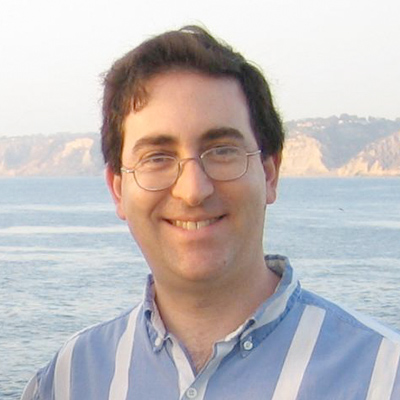Gaining new insight into GOLPH3 as a new target for cancer therapy
Of the roughly 24,000 genes encoded by the human genome, we have insight into the function of only a small minority of them. The rest remain the “dark matter” of biology - known to exist but poorly understood. Dr. Seth Field, a physician and scientist at the University of California, San Diego, believes that in order to understand human disease for developing cures, we must first better understand the dark matter. He has taken an innovative approach to identify new functional pathways that operate within our cells. One of the new pathways Dr. Field has discovered functions in the process by which cells export proteins, called secretion. He discovered that a protein called GOLPH3 is key to the process of secretion. This discovery is a surprise because GOLPH3 is also involved in driving a high proportion of cancers, and high levels of GOLPH3 in a cancer is a grim predictor that the cancer will be refractory to treatment. Thus, unexpectedly, the process of secretion plays an important role in cancer. This discovery promises to provide new insight into the processes that drive cancer and to reveal targets for new types of cancer therapy. Dr. Field’s attention is now focused on learning how to disable the GOLPH3 pathway as an approach to curing cancer.
In studying the general ways cells function and communicate within the body, Dr. Seth Field, Associate Professor of Medicine in the Division of Endocrinology and Metabolism at the University of California, San Diego began by asking a number of fundamental questions, including: How do molecules in the cell carry information? What are the molecules in the cell that read that information? and What effects do they have? In answering those questions, he hit upon a pathway that involves a protein called GOLPH3, which he found plays an important role in regulating secretion, the process by which cells release proteins into the extracellular environment. In a surprise to the scientists, this new pathway was found to be fundamentally important to how cancer functions; this discovery initiated a paradigm shift in our understanding of how cancer works. In fact, GOLPH3 is commonly amplified in various cancers, contributing to the conversion of healthy cells to cancerous cells, and converting cancer cells into a more deadly version, resistant to standard therapies. Cancers that are driven by the GOLPH3 pathway include lung, breast, colon, prostate, pancreatic, liver, stomach, kidney, esophageal, ovarian, and brain cancers, and possibly others, as well. Dr. Field is exploring a number of different approaches to understand why a pathway responsible for regulating secretion drives cancer and to develop ways to inhibit this pathway. Current research projects focus on these questions using three perspectives:
-
How do the molecules involved with GOLPH3 work, and what do they do to assist in the process of secretion? Dr. Field believes that understanding the processes and pathways regulated by the dark matter of the human genome will be required to fully understand their contribution to human disease.
-
How do these molecules contribute to cancer? Dr. Field is working to develop new cancer models that take into account the observation that the gene controlling GOLPH3 drives a high proportion of human cancers. These models are being used to test what that role is.
-
Drawing from the prior two approaches, Dr. Field is working to identify small-molecule inhibitors of these pathways to develop drugs that allow doctors to block the pathway. He will then use the cancer models that he is developing to test whether these drugs are useful as new cancer therapeutics.
Dr. Field’s work is offering surprising new ways of thinking about cancer, and Dr. Field hopes to translate his research into tangible benefits for cancer patients. The avenues he is currently pursuing are fundamentally different from every other approach being pursued in the cancer research field, but the data indicate that new GOLPH3-targeted drugs will work particularly well in conjunction with current treatments.
Bio
As a physician who frequently assists in managing the care of men and women affected with cancer, Dr. Seth Field struggles with feeling that modern medicine, despite its many advances, remains largely powerless in treating many of humanity’s crippling diseases. Cancer is one of the world’s leading causes of death, and Dr. Field has witnessed countless times the personal suffering that accompanies the diagnosis of this disease. As a researcher, he knows that the medical and scientific communities should be able to do better. Dr. Field believes that intelligently directed cancer research will offer opportunities to make things better, and is motivated by his ability to contribute to the ushering in of a new wave of novel cancer treatments. He is working to make progress in trying to change the way cancer treatments approach and attack tumors.
Outside of the lab, Dr. Field enjoys traveling with his family, which offers him the opportunity to learn more about the world as a whole, and understand and appreciate the differing viewpoints of different cultures. Learning how different people approach life offers Dr. Field new outlooks into his own life and work.
In the News
Publications
Awards
Member, Editorial Board of the Journal of Biological Chemistry, 2014
Elected to the American Society for Clinical Investigation, 2011
Era of Hope Scholar Award in Breast Cancer Research, 2010
Presented by the Department of Defense Congressionally Directed Medical Research Program


